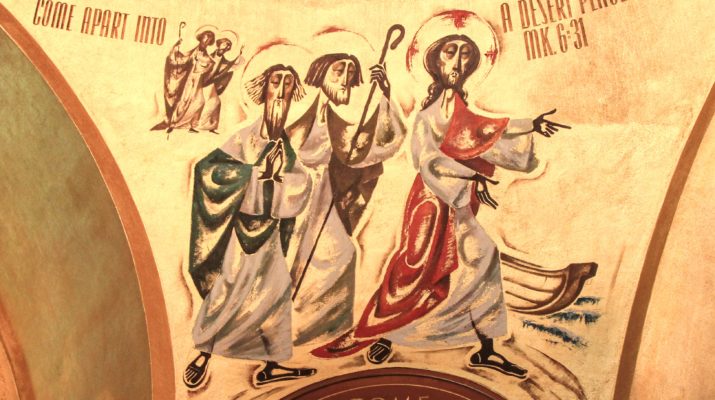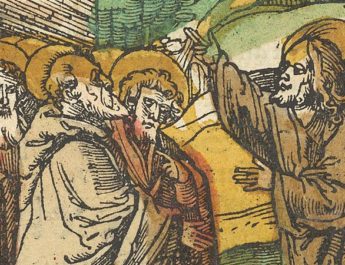John 17:20-26
Eastertide C27
20 “I askA not onlyB on behalf of these but also on behalf of those who believeC in me through their word,D
21 that they may allE beF one.G As you, Father,H are in me and I am in you, may they also be in us, so that the worldI may believe that you have sentJ me.
22 The gloryK that you have givenL me I have given them, so that they may be one, as we are one, 23 I in them and you in me, that they may becomeM completely one,N
so that the world may knowO that you have sent me and have lovedP them even as you have loved me. 24 Father, I desireQ that those also, whom you have given me, may be with me where I am, to seeR my glory, which you have given me because you loved me before the foundationS of the world.
25 “RighteousT Father, the world does not know you, but I know you, and these know that you have sent me. 26 I made your nameU knownV to them, and I will make it known,W so that the loveX with which you have loved me may be in them and I in them.”
Image credit: “Come and Rest” at the main sacristy of the Basilica of the National Shrine of the Immaculate Conception in Washington DC. Photo by Lawrence OP, 2014.




